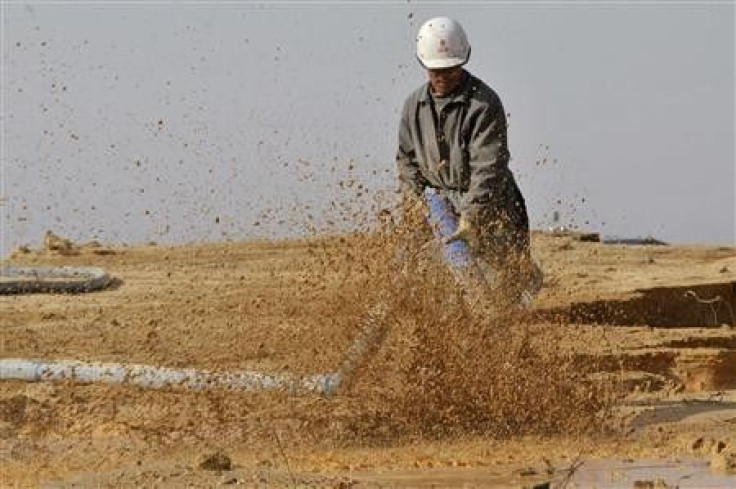China to shake up rare earth industry

China announced a shake-up of its rare earths industry on Wednesday, vowing reasonable quotas on mining and exports to bring order to the small but strategic sector where its dominance has spooked foreign buyers.
China produces about 97 percent of the global supply of the minerals used in smartphones, electric car motors and high-tech industrial equipment, and Beijing cut export quotas by 40 percent last year, alarming buyers and trading partners.
Premier Wen Jiabao told a Cabinet, or State Council, meeting that the country's rare earth industry had been harmed by illegal mining and chaotic exports.
We will fully take into account both domestic resources, production and consumption as well as the international market, and reasonably set annual quotes for total volumes of rare earth mining production and for exports, said an account of the meeting on the central government website (www.gov.cn)
Chinese rare earths traders said the announcement firmed up official moves already happening, and some said it would probably magnify the dominance of bigger state-owned companies in the industry.
The government has already been moving to strengthen controls on mining, and being stricter about environmental controls, and this sounds like it's an extension of that, said Ni Kunwei, a rare earths sales manager with the Jinlong Rare Earths Company in east China's Fujian province.
In the short term, I'd expect rare earths prices domestically to rise, because of all the attention from the government and the extra controls, he added.
The State Council said it would take about 5 years to establish a sustainable and healthy setting for the rare earths industry with reasonable mining, orderly production, efficient usage, advanced technology and intensive development.
That would also entail more comprehensive oversight of the sector, stricter mining policies and environmental standards, and strict entry barriers into the sector. There would be a crackdown on illegal mining and mining above permitted levels.
We must accelerate industry integration, the statement said, adding that would also involve mergers and restructuring.
The announcement said China would take into account both domestic and foreign markets and actively develop international cooperation.
It also said that China's rare earths sector had made big strides and expanded in size.
But there are still problems with the development of the rare earths sector... and considerable chaos in export orderliness. These are seriously affecting the healthy development of the sector.
The announcement said China would take into account both domestic and foreign markets and actively develop international cooperation.
The new government policy statement did not give any details about mining or export quotes.
China has cut export quotas for the first half of 2011 by 35 percent from the first half of last year, although total quotas for this year have not yet been announced. China says the quota cuts will prevent reckless and polluting mining of deposits.
China's moves have raised hackles in major trading partners such as the United States, European Union and Japan. The U.S. Trade Representative office has threatened to take China to the World Trade Organization about its export restraints.
The rare earths issue adds to the growing list of trade-related disputes between China and the United States, including U.S. complaints that China's currency is undervalued.
U.S. makers of high-tech products such as Apple Inc's iPads and various Japanese companies have been scrambling to secure reliable supplies of the minerals outside China as Beijing steadily reduces export allocations.
China's International Business Daily reported on Tuesday that the country was likely to create a rare earth industry association in May to help its miners obtain more pricing power in the global market.
© Copyright Thomson Reuters 2024. All rights reserved.











